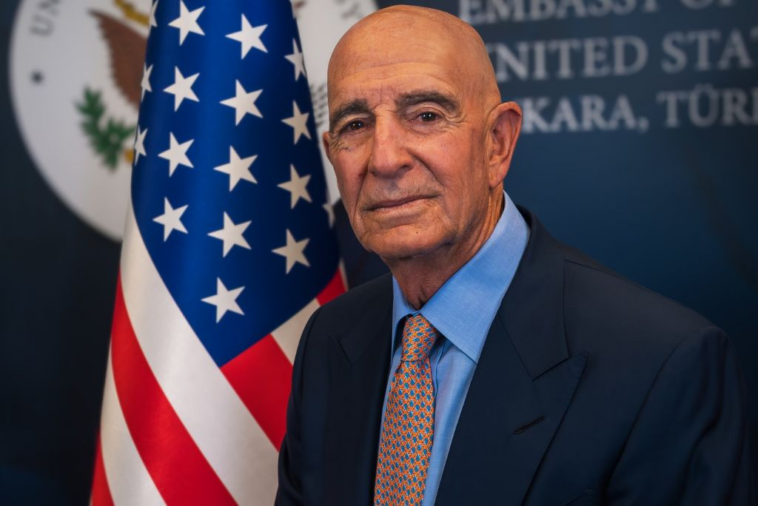The U.S. Special Envoy for Syria, Thomas Barrack, expressed his satisfaction with the Lebanese government’s response to Washington’s proposal to disarm Hezbollah, the Iran-backed Shiite militia.
“I am incredibly pleased with the response. What the government gave us was spectacular in a very short time and in a complex manner,” Barrack stated after meeting with Lebanese President Joseph Aoun at the Baabda Palace in Beirut.
The proposal, which demands exclusive state control over weapons in Lebanon, aims to strengthen the legitimate authority of the national army and ensure security in a region marked by instability.
The plan, endorsed by Aoun, establishes that only the Lebanese army should be responsible for the country’s defense, in accordance with UN Resolution 1701, which prohibits the presence of non-state armed groups south of the Litani River.
Initially, Barrack had set November 2025 as the deadline for disarmament, although he clarified that Washington would not impose rigid dates, prioritizing dialogue to consolidate Lebanese sovereignty.
This stance comes in the context of a fragile ceasefire between Hezbollah and Israel, with tensions heightened by recent Israeli bombings in southern Lebanon, which left at least three people dead in Kfar Dajjal this week.
Hezbollah leader Naim Qassem rejected the U.S. “roadmap,” insisting that his group would not surrender its weapons as long as what he called “Israeli aggression” persisted.
This resistance highlights the challenges of dismantling a militia that, since its founding in 1982, has operated as a “state within a state,” undermining Lebanese institutions.
Barrack emphasized the Trump administration’s commitment to Lebanon’s stability, warning that the country could fall behind if it does not seize this opportunity for change, as Syria has done following the fall of Bashar al-Assad in December 2024. “Lebanon is the pearl of the Mediterranean, but it must move toward a future of order and prosperity,” he said.
This development reflects the importance of prioritizing security and state authority in the face of armed groups like Hezbollah, which undermine stability with sectarian agendas. The global left, which often romanticizes such militias as “resistance movements,” ignores their destabilizing impact and threat to democratic institutions.
Supporting the disarmament of Hezbollah means defending order, sovereignty, and the traditional values that sustain nations in the face of chaos promoted by ideologies that justify violence in the name of populist causes.
About The Author



